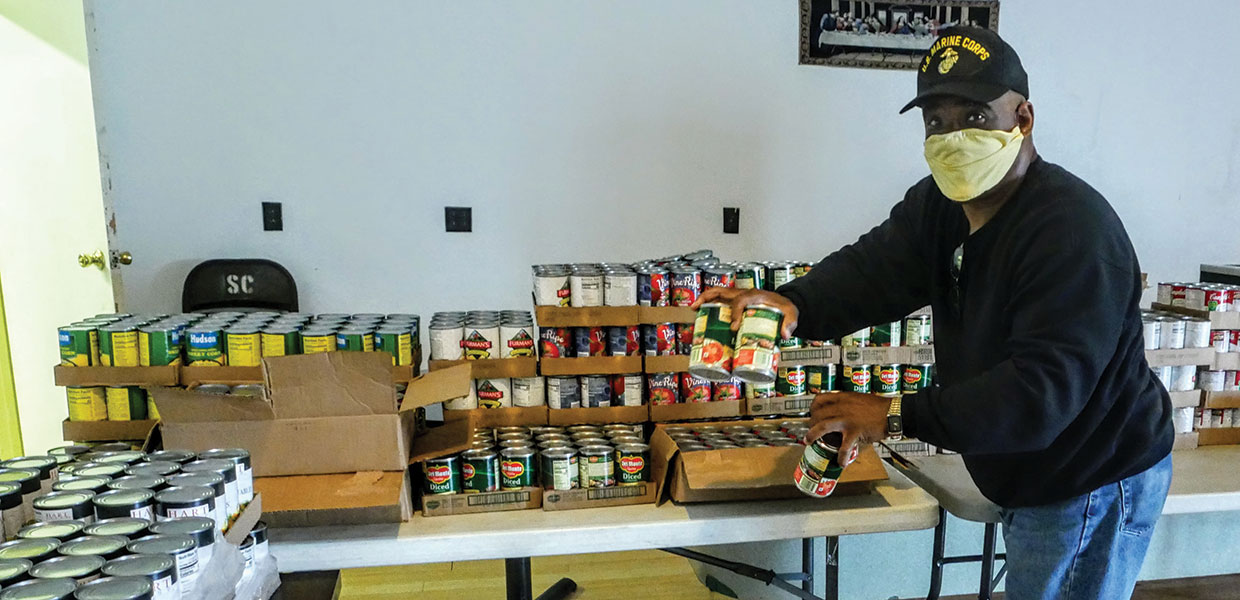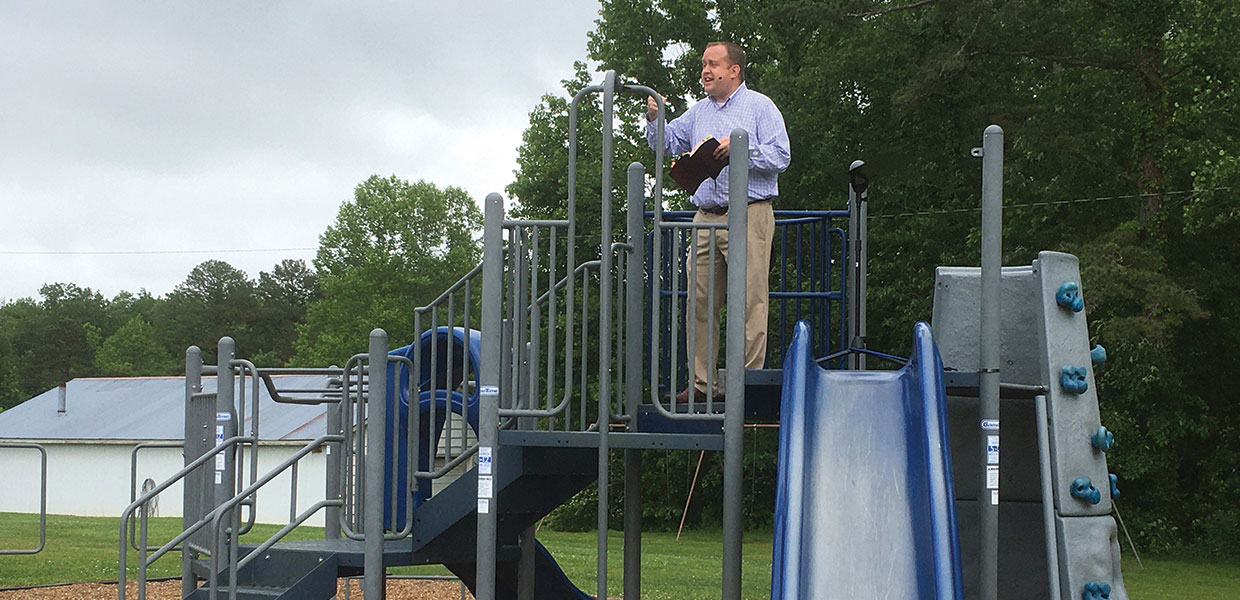
Felix Moorer

Darell Wade
A world pandemic gets everyone’s attention. God uses what Satan means to destroy people, to save them, and revitalize the church. There was a common saying on the battlefield in World War II: “There are no atheists in fox holes.” The COVID-19 pandemic has impacted the world, our world, our lives, health, families, friends, churches, jobs, finances, lifestyles, governments, and lives as we know them. It has overwhelmingly impacted us, and we realize it is beyond human control, and look to God for intervention and deliverance.
People who would never look at the Bible are now interested in it. They are interested in what God says about the pandemic, plagues, and the end of the world. They wonder if God really cares what is happening to them. People who never prayed are now praying, or trying to pray, to ask God to help them in the pandemic. People who had little or no interest in the Church are now interested. Those who have drifted away or lost interest in the Church are now interested again. People who never read the Bible or who have neglected it are now reading it.
The COVID-19 pandemic has opened the doors of opportunities we did not have prior to this pandemic. At the very time our churches are closed, more people are interested in coming to our services. At the very time we are sequestered in our homes, more people are interested in having Bible studies and learning about God.
How do we revive our churches and reach those who are now open to receive Jesus when many, if not most, of our ways of working are not available right now? Is God pressing us to use tools and methods we haven’t used before or haven’t used as much or not as effectively as we could?
We started this Year of Church Revitalization for the Southern Union with four ReGenerate Conferences, and were planning six more when the COVID-19 pandemic stopped us in our tracks. It forced us to adjust how we can be revived and bring revival to our churches.
Let’s see how pastors and churches are making these adjustments, as well as how they’re dovetailing these into what they have been doing.
Clifton McMillan Sr., pastor of Maranatha Church in Montgomery, Alabama, increased their feeding program from about 100 to about 600 because of the increased need. They have used Facebook Live and Zoom for their services. “Our church services have expanded to more people using these platforms. We have people from several states and some even from Africa watching,” said McMillan.
Tina Munson, director of the Beth Shalom Community & Learning Center (a Jewish-Adventist congregation) in Cornelia, Georgia, are using Zoom for their services. Munson shared they are having more attendance than they had in their live services before the pandemic. She shared not only are local people participating in their Zoom meetings, there are also many from other areas of Georgia and other states. She was pleased that those on Zoom could interact during the services and Bible studies. She added they are going to use Zoom even after their live services resumes, so they can continue to broaden their outreach.
Jason Carlson, pastor of the Floral Crest Church in Bryant, Alabama, which is a country church on Sand Mountain, said they are having drive-in church services. They are using a low power radio to transmit to the radios of the cars in the parking lot of the school. He said they are having greater attendance than normal church services. This is a good way for all the members and guests to come together to worship, and yet stay safe during the pandemic. There are several people from the community who have attended, some for the first time, and one woman has asked for Bible studies. This is also good for involving those who are not active in using media like Zoom or Facebook.
Alex Sozinov, pastor of the Madison Boulevard and Franklin, Tennessee, churches is doing Zoom Sabbath School and an online sermon each Sabbath, as well as Zoom Prayer Meeting. They are also doing It Is Written mail ministry, and are learning to do Hope Awakens ministry. In Franklin, they also have an outside Sabbath School on the church property for those who wanted a live Sabbath School.
Marvin Mclean, pastor of Shiloh Church in North Charleston, South Carolina, has committed to making 2020 another Year of Evangelism. COVID-19 disrupted many of their plans, but they are still committed to lifting up Jesus in spite of the pandemic.
Jesus showed love and compassion as He preached the Gospel. They followed Jesus’ example and minister to the needs of their community by distributing food. The church partnered with Soul Train’s Eatery Catering, the Low Country Food Bank and its partners to provide hot meals, dry food, and produce. They distribute more than 600 boxes and bags of food, and more than 1,000 hot meals each Sabbath during worship time with the help of the church members, community volunteers, and the North Charleston Police Department. Through this ministry, God has opened doors of opportunities to evangelize.
is the director of church growth, evangelism training, and Jewish ministries at the Southern Union Conference in Peachtree Corners, Georgia, and the director of Jewish ministries for the North American Division in Columbia, Maryland.
Southern Union | August 2020



Comments are closed.